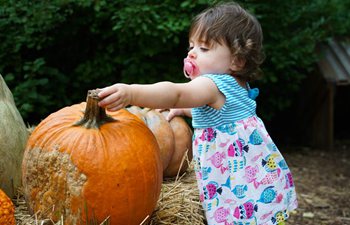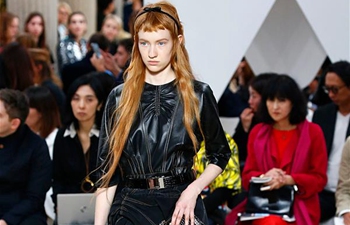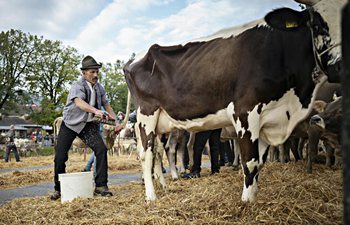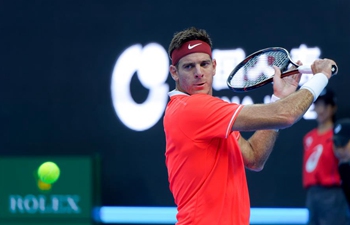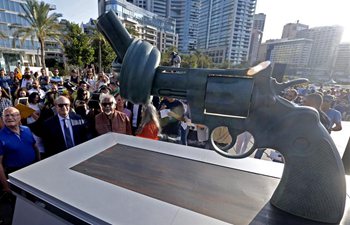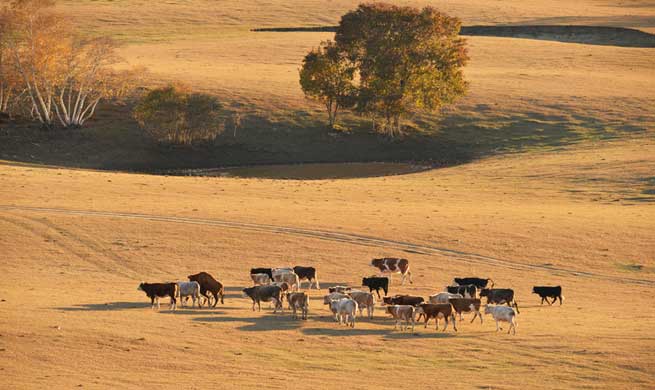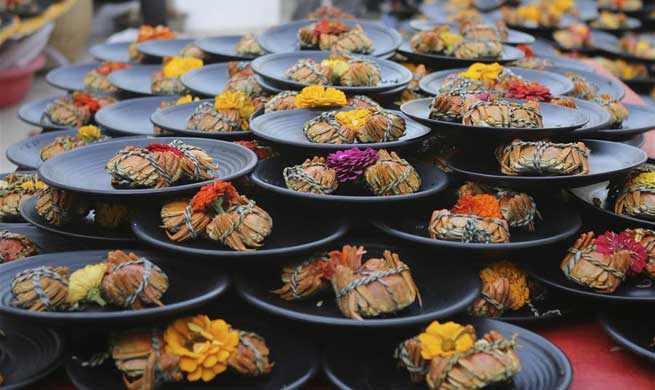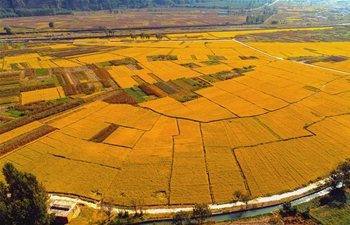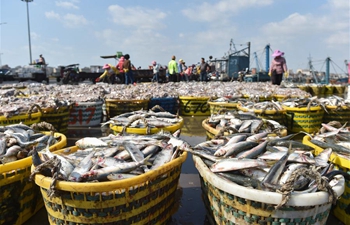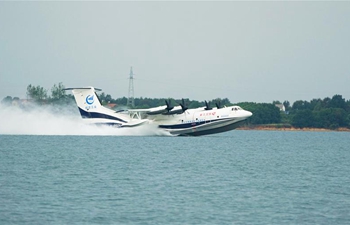TAIPEI, Oct. 3 (Xinhua) -- Four years ago, Chen Jen-hsiang decided to quit his job as a game programmer and do things that have a positive impact on society -- something "more real."
He rented the premises of a former kindergarten in a small alleyway in New Taipei City and built a two-story building with large windows and wooden floors into a cat hotel: The Puzzle Cat Home.
He began keeping stray cats, but when the number of animals rose to 80, money became tight.
To keep his cat home afloat, Chen had to find ways to make ends meet, but he did not want the lives of the cats to be compromised.
He tried live-streaming the cats' activities and hosted parties to invite cat-lovers to interact with the cats. But all failed financially.
It was not until recently that he found an unlikely ally: cat poop.
"Bio-compost is not a new idea. But people usually need to add a medium to facilitate fermentation, such as wood dust or husks of grain. I found cat litter can be just that," Chen said.
He showed Xinhua reporters bags of fertilizer made from cat feces and litter in the courtyard, ready to be sent to the countryside.
There was barely any odor. Chen said that when he started experimenting with his fertilizer, "it was like cooking shit."
Bad smell was an issue at first. He had a fertilizer machine custom-made to feature strong ventilation to keep the air fresh.
He also made sure the novel fertilizer passed safety tests before taking it to the market.
Today, Puzzle Cat can produce 25 to 30 kg of fertilizer per day.
Chen opens the lid of the machine, stirs it, takes out a small black heap and keeps it close to his nose. "It smells just like soil."
Chen explained that the cat feces-turned fertilizer works more like soil conditioner, providing healthy fungi for plants and crops. But it took considerable effort to talk farmers into using it. A farmer from Yilan County was the first to try.
"I was so happy to produce something that is so real and useful in daily life," Chen said. He even persuaded some farmers to grow vegetables and tea using the fertilizer.
"If farmers, especially those living near the water, use our organic fertilizer instead of chemicals, it is good news for ecology," he said. "The crops are healthy, and we can make money. It's multiple wins."
Chen said his next project would be working with herb farmers to produce facial masks, catering to supporters of Puzzle Cat, who are 95 percent young women.
Apart from selling fertilizer and farm produce, Chen and his team are developing their own cat litter.
Though Chen hopes to break even by the end of the year, he believes there is something more important than money.
"People and animals used to share the same space. One day we leveled the ground, built houses and asked animals, why are you homeless?" Chen said. "But their home was right here."
He built Puzzle Cat to be a place where people can share ideas surrounding animal protection and welfare.
If this new business works, it might shed light on the issue of animal protection in other areas, Chen argues, adding that he hopes to take the idea to other parts of the world as people have already shown interest.
"We are not in a hurry. People with different ideas on animal welfare should sit down and talk," he said. "We will be able to understand each other and find common ground."




